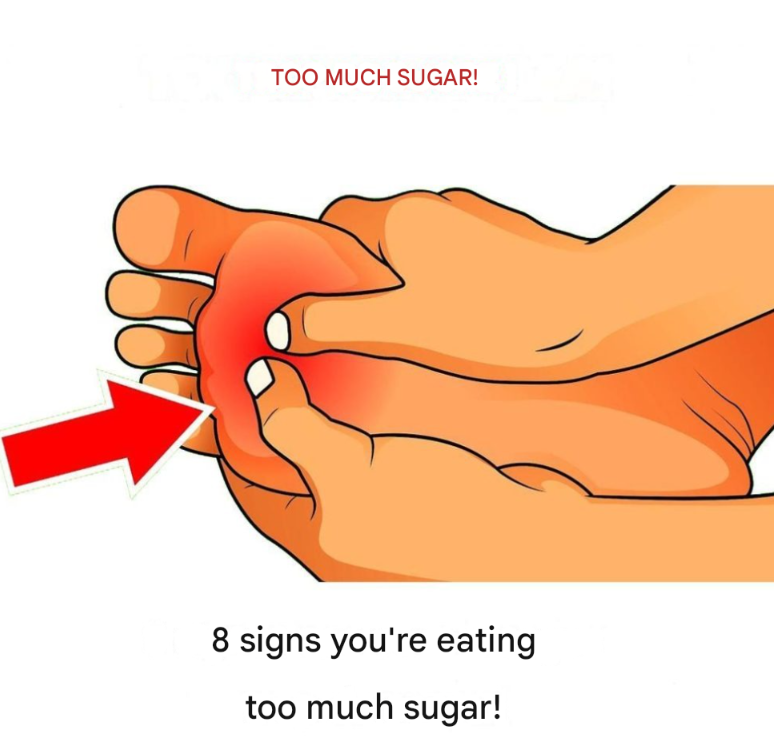Sugar is packed with empty calories and can promote fat storage, particularly around the midsection. Fructose, a common component of added sugar, is linked to increased abdominal fat.
Tip: Be mindful of hidden sugars in processed foods and drinks, and prioritize whole, unprocessed meals.
5. Increased Skin Issues
Acne, premature aging, and dull skin can all be linked to excessive sugar consumption. High sugar intake promotes inflammation and may interfere with collagen production, leading to breakouts and wrinkles.
Tip: Drink plenty of water, cut back on sugary foods, and load up on skin-friendly nutrients like vitamins A, C, and E.
6. Trouble Sleeping
Sugar impacts cortisol levels — the stress hormone — which can interfere with your ability to fall and stay asleep. Consuming sugar late in the day can make this effect worse.
Tip: Limit sugary foods in the evening and adopt a calming bedtime routine to promote restful sleep.
7. Frequent Illness or Poor Immune Function
Too much sugar can suppress the immune system, making you more prone to colds, infections, or slow wound healing. Research shows that high blood sugar levels can odd white blood cell function.
Tip: Support your immune system with a balanced diet rich in vitamins, minerals, and antioxidants.
8. High Blood Pressure and Other Health Risks
Consistently high sugar intake is linked to increased blood pressure, heart disease, type 2 diabetes, and liver problems. Even if you don’t notice immediate symptoms, excessive sugar can silently contribute to long-term health risks.
Tip: Read labels carefully, reduce sugary drinks, and cook more meals at home to take control of your sugar intake.
The Bottom Line
Sugar isn’t inherently evil — a little in moderation can be part of a healthy diet. But when it becomes a constant presence, the effects can add up quickly. If you recognize several of these signs in yourself, it might be time to take a closer look at your sugar habits.
Start small: swap soda for water, choose whole fruit instead of candy, and become a label detective. Your body — and your future self — will thank you.
